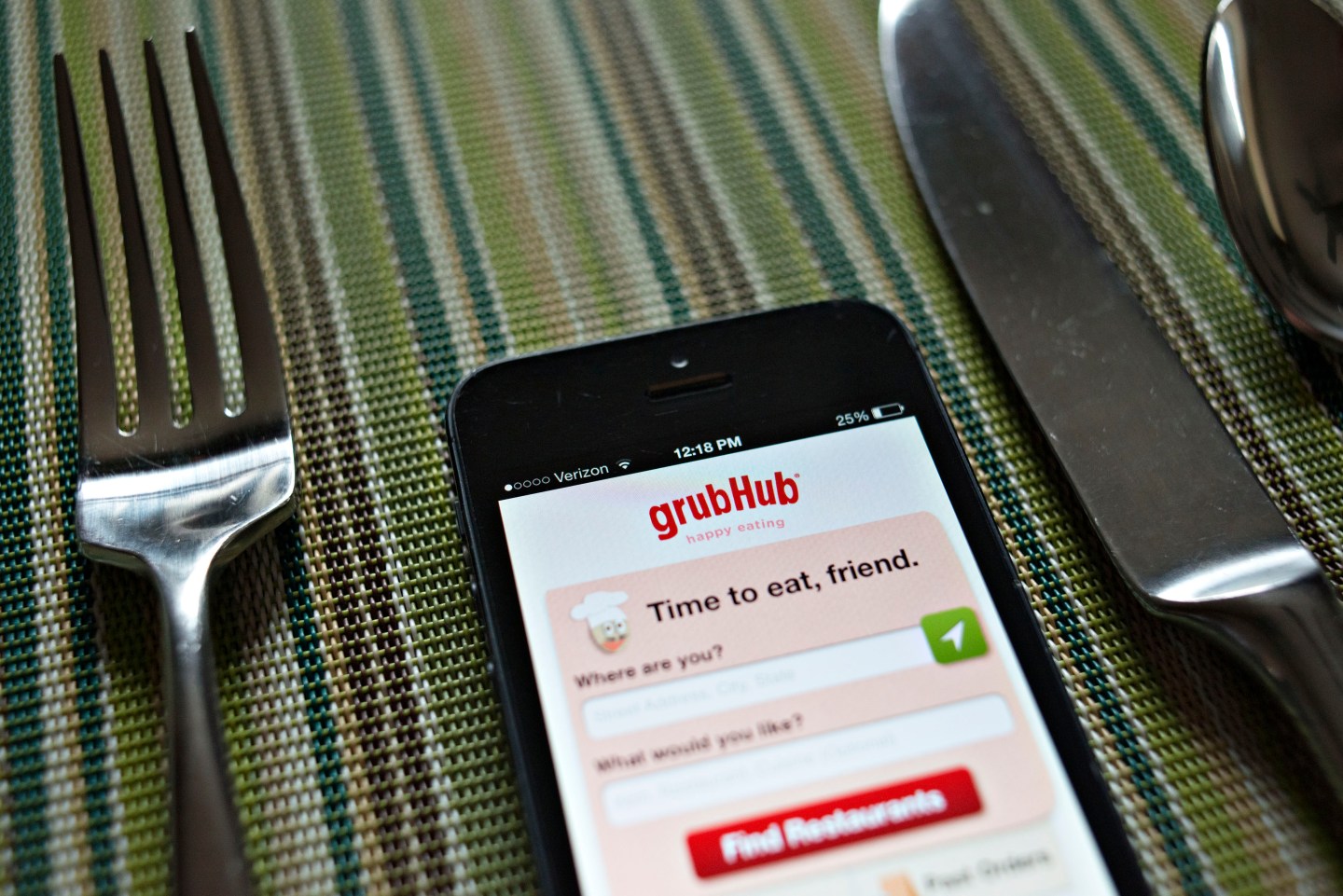The lawyer who’s already sued ride sharing platforms Uber and Lyft has a new target: food delivery services.
On Wednesday in San Francisco superior court, Boston attorney Shannon Liss-Riordan filed lawsuits against GrubHub, DoorDash, and Caviar claiming that the food delivery companies have misclassified their drivers as independent contractors. Liss-Riodan has filed lawsuits on those same grounds against Uber and Lyft, with some success. Last month, a federal judge certified a class of drivers in the case involving Uber.
The lawsuits against GrubHub and DoorDash are class actions; the one against Caviar is a demand for arbitration. The filings argue that the services’ drivers are being treated as employees but because they’re considered independent contractors, they get none of the benefits.
The complaint targeting GrubHub, for instance, says the plaintiffs operate as employees yet they don’t receive overtime pay or reimbursement for expenses because of their classification as independent contractors.
A spokesperson for GrubHub told Fortune that it could not comment on pending litigation. DoorDash and Caviar did not immediately return requests for comment.
The classification issue is a hot one in the field of labor law, especially when it comes to on-demand apps whose business models rely on inexpensive labor. As plaintiffs’ lawyers challenge the legality of companies’ independent contractor workforces, some players in this space, such a grocery delivery company Instacart and shipping service Shyp, have voluntarily transitioned their “1099” workers—a reference to the tax designation for independent contractors—to W-2 employees.













